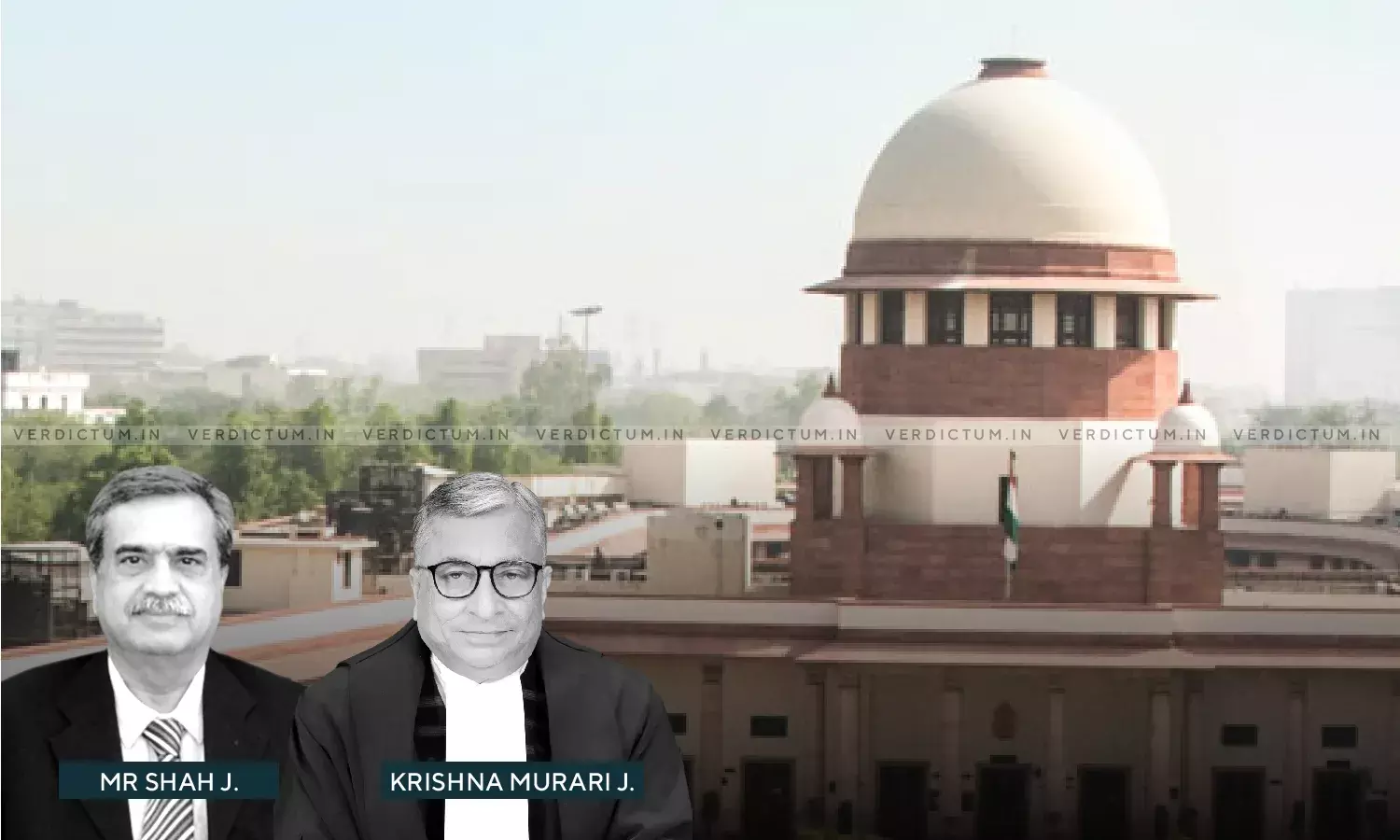Unregistered Agreement To Sell Shall Not Be Admissible In Evidence- SC In Suit For Permanent Injunction

In a suit for permanent injunction, the Supreme Court has observed that an unregistered document or an agreement to sell shall not be admissible in evidence.
The Bench of Justice MR Shah and Justice Krishna Murari observed –
"The plaintiff clverly prayed for a relief of permanent injunction only and did not seek for the substantive relief of specific performance of the agreement to sell as the agreement to sell was an unregistered document and therefore on such unregistered document/agreement to sell, no decree for specific performance could have been passed."
The Court also held that it may be true in a given case, that an unregistered document can be used and/or considered for collateral purposes. However, at the same time, Plaintiff cannot get the relief directly which otherwise he/she cannot get in substantive relief.
Counsel Sushil Balwada appeared for the Appellant before the Apex Court.
In this case, the Respondent-Original Plaintiff instituted a suit before the Trial Court for permanent injunction only. The suit was filed on the basis of an unregistered agreement to sell. The original Plaintiff sought a permanent injunction restraining Defendant from disturbing her possession of the suit property.
In the suit, the Appellant – Original Defendant filed a counterclaim seeking the decree of possession.
The Trial Court dismissed the suit filed by the original Plaintiff and refused to grant permanent injunction and allowed the counter-claim of the Defendant on the ground that original Plaintiff could not prove the agreement to sell and that the original Plaintiff is in unauthorised possession of the suit property since 1997.
An appeal was preferred by the original Plaintiff before the First Appellate Court which was allowed and came to be confirmed by the High Court.
Aggrieved, the original Defendant approached the Supreme Court.
The Court noted that the agreement to sell was an unregistered document/agreement to sell on ten rupees stamp paper. Therefore, as such, such an unregistered document/agreement to sell shall not be admissible in evidence.
Further, the Bench in this context observed –
"Having conscious of the fact that the plaintiff might not succeed in getting the relief of specific performance of such agreement to sell as the same was unregistered, the plaintiff filed a suit simplicitor for permanent injunction only. It may be true that in a given case, an unregistered document can be used and/or considered for collateral purpose. However, at the same time, the plaintiff cannot get the relief indirectly which otherwise he/she cannot get in a suit for substantive relief, namely, in the present case the relief for specific performance."
Thus, the Court held that Plaintiff cannot get the relief even for a permanent injunction on the basis of such an unregistered document/agreement to sell, more particularly when Defendant specifically filed the counter-claim for getting back the possession which was allowed by the Trial Court.
The Court further added, "The plaintiff cleverly prayed for a relief of permanent injunction only and did not seek for the substantive relief of specific performance of the agreement to sell as the agreement to sell was an unregistered document and therefore on such unregistered document/agreement to sell, no decree for specific performance could have been passed. The plaintiff cannot get the relief by clever drafting."
Accordingly, the Court set aside and quashed the impugned judgment of the High Court and restored the decree passed by the Trial Court and allowed the appeal.
Cause Title – Balram Singh v. Kelo Devi
Click here to read/download the Judgment

